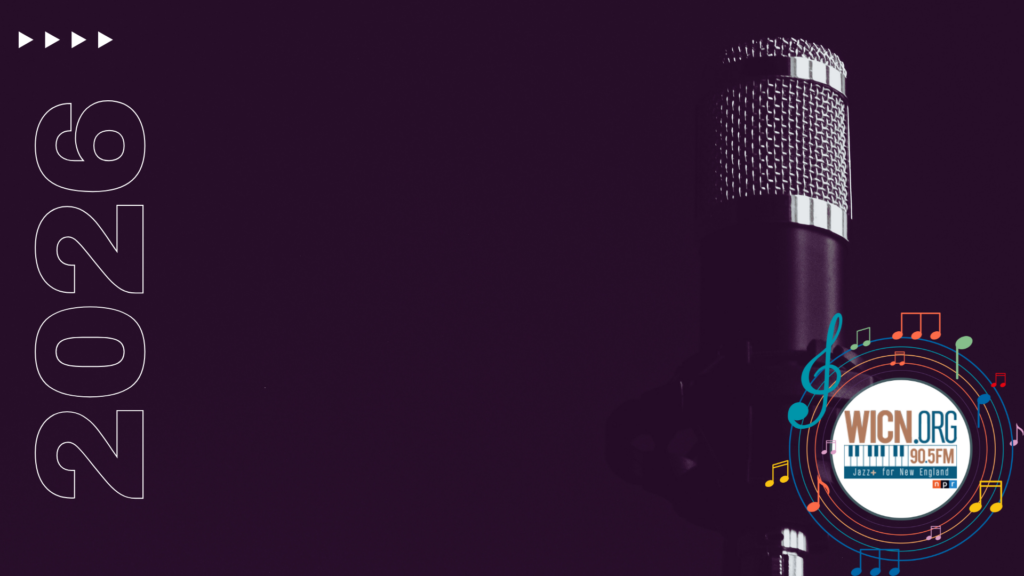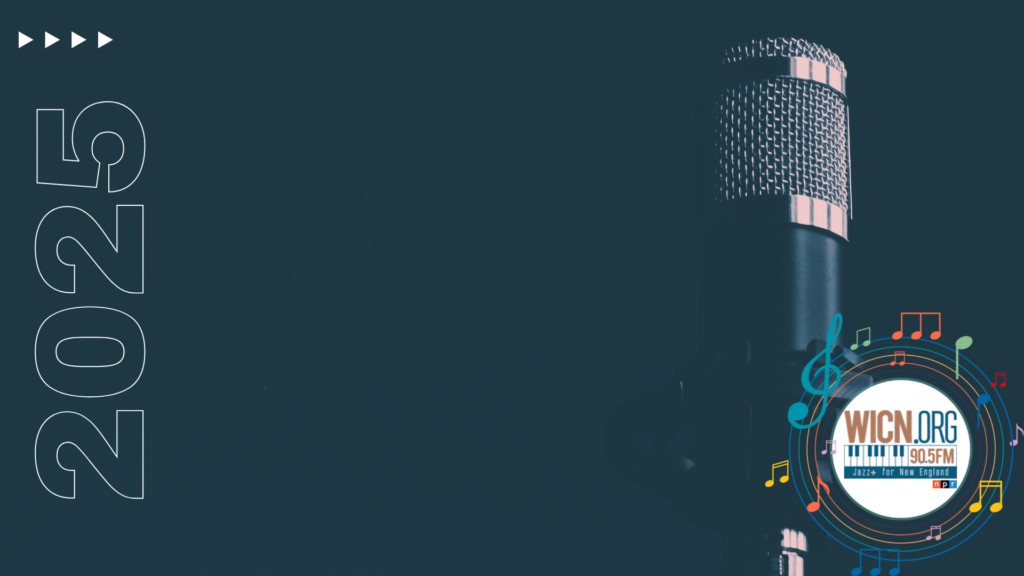WICN Artist of the Month, April 2025: Hugh Masekela
Written by Doug Hall on April 1, 2025
Within the civil rights struggle against South Africa’s apartheid (1948-1994), the voice of protest had to take many forms. Musically, in representation of political protest, and bringing worldwide attention to racial and societal injustice, South African trumpeter, flugelhornist, cornetist, singer and composer Hugh Masekela has been described as “the father of South African jazz.” Both his voice and instrument would express the agony, prejudice, conflict and violence imposed on the segregated and marginalized Black population under the dictatorial rule of South Africa’s apartheid governmental regime.
Masekela’s compositions like Soweto Blues and Mandela (Bring him Back Home) spoke to the masses under oppression in his homeland. He drew inspiration from the ethnicity of African culture: street songs, church songs, migrant labor work songs, and political protest songs. In self-exile from South Africa in 1966, until Nelson Mandela’s representational democratic election victory in 1994, (becoming the first black head of state of South Africa), Masekela’s compositions were the anthems that spoke to the emotions and indomitable spirit of the anti-apartheid movement and helped garner world attention.
His musical career began at childhood in the 1950s, by showing a gifted ear, and the ability to absorb the influence of a musical family and the culture of his coal miner’s community. In his own words, in a New York Times article, Masekela reflected on this period in his early childhood, “One of the great things also about Witbank [mining community] was that all these people brought their different music and their different stories about where they came from, and as a little kid, I hung out with them in the backyard and the kitchen and I knew all about their countries.”
(https://www.nytimes.com/2018/01/23/obituaries/hugh-masekela-dies.html)
South Africa’s anti-apartheid Archbishop Trevor Huddleston would enter Masekela’s life at an early stage in his musical development, giving him his first trumpet. With enormous natural ability, and after only rudimentary instruction, he mastered the basics of the instrument. With Masekela already exhibiting a strong musical direction while in school, and with other classmates joining this interest, the Huddleston Jazz Band would be formed, becoming South Africa’s first youth orchestra. Louis Armstrong, a friend of Archbishop Huddleston, became aware of this jazz youth orchestra, and in particular, the budding talent on trumpet, and sent Masekela one of his horns.
Huddleston, who would be forced to leave South Africa under threat of personal violence and arrest, worked to find Masekela a musical educational opportunity in England. But in 1959, Masekela would instead find his first significant professional exposure and success by joining the pit orchestra of the “all-African jazz opera,” King Kong, with music composed by the seminal South African pianist Todd Matshikiza, becoming an enormous hit. It “swept South Africa like a storm” according to one report, touring the country for two years and playing to record-breaking multiracial audiences, before being booked for a London production in 1961, by which time it had been seen by some 200,000 South Africans. (King Kong, the first all-African jazz opera, Soul Safari, August 10, 2009.)
In 1960, Masekela would connect with Abdullah Ibrahim (then known as Dollar Brand), forming The Jazz Epistles, which was South Africa’s earliest most influential jazz (bebop) bands. In his 2004 biography, Still Grazing: The Musical Journey of Hugh Masekela, Masekela reflected on the creative synergy of the band, “Our tireless energy, complex arrangements, tight ensemble play, languid slow ballads and heart-melting, hymnlike dirges won us a following, and soon we were breaking all attendance records in Cape Town.” The lineup included Abdullah Ibrahim on piano, Masekela on trumpet, Jonas Gwangwa on trombone, Kippie Moeketsi on alto saxophone, Johnny Gertze on bass, and Makaya Ntshoko and Early Mabuza on drums. (https://www.nytimes.com/2018/01/23/obituaries/hugh-masekela-dies.html)
With the horrific South African Sharpeville Massacre, of this same year, where 69 unarmed protesters were killed by police in a township outside Johannesburg, tighter restrictions regarding social group gatherings were enforced by law and other bans made further performances impossible. Both Masekela and Ibrahim chose to leave the country.
International friends, including Yehudi Menuhin and John Dankworth, helped Masekela get into the Guildhall School of Music in London, after which his friends Harry Belafonte and Miriam Makeba came through for him, and he secured a scholarship to the Manhattan School of Music in New York City. He studied classical trumpet there for four years.
Masekela would be credited as one of the first artists to bring South African jazz to the United States, releasing Trumpet Africaine: The New Beat from South Africa in 1962. His breakthrough album was called The Americanization of Ooga Booga. One of his original titles on the album was a cover he did for Herbie Hancock. On his release The Promise of a Future, the 1968 hit that Americans know him for — Grazing in the Grass — sold 4 million copies. He often explained that any fame and financial success from these commercially successful years were all dedicated to the cause of the anti-apartheid movement.
In the 1970’s, he would immerse himself back into his African roots through musical directions, with creative associations, collaborations and recordings with several forerunners and pioneers of the genre known as Afrobeat. He began a partnership with Nigerian musician Fela Kuti, South African saxophonist Dudu Pukwana, and fronted a Ghanian group Hedzoleh Soundz, recording two albums with the group Introducing Hedzoleh Soundz and I Am Not Afraid, and toured the United States with them in 1974.
The period of the 1980s started a downswing in his performing and recording opportunities, as drug and alcohol addiction kept him from being completely productive with his musical pursuits. Nonetheless, he toured in 1986 and 1987 with Paul Simon and supported Simon’s hugely successful African-influenced release Graceland, which included other established African musicians such as Miriam Makeba, Ladysmith Black Mambazo, and Ray Phiri. Finally kicking his addictions in the 1990s, Masekela established the Musicians and Artists Assistance Program of South Africa to help South Africans battle substance abuse.
In 1987, his most poignant and recognized political composition, dedicated to the future first black head of state in South Africa, Nelson Mandela, was released, Mandela (Bring Him Back Home), on the album Tomorrow.
Recognized worldwide for his tireless fight, in exile, against the regime of apartheid and its system of legalized racial segregation, discrimination and violent oppression of the Black population in South Africa, Masekela would return to his homeland in 1990, the year Mandela was released from prison. He continued to record and tour around the world into his mid-70s.
From 2000 to 2016, Masekela would continue to actively record, additionally collaborating and performing with contemporary musicians including the Dave Matthews Band, while also re-interpreting inspirational songs by international composers including Jorge Ben, Antonio Carlos Jobim, Caiphus Semenya, Jonas Gwangwa, Dorothy Masuka, and Fela Kuti.
Masekela died in Johannesburg, South Africa in 2018.
In 2010, Masekela was awarded the Order of Ikhamanga in gold, South Africa’s highest medal of honor. Since 2014, Soweto has been the site of an annual Hugh Masekela Heritage Festival, with the stated aim “to restore our South African heritage and to uplift the local artisans of Soweto.”
As “the father of South African jazz,” his political defiance was expressed in the music of his African roots and the evolutionary mixture of jazz influences that came from his trumpet. His reminder to humanity is prescient today, in a concise quote, “No one group is privileged by nature to oppress another. And if anybody can’t see that, they are mentally deranged.”

